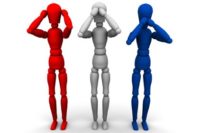Sleepy healthcare workers prone to pain, study finds

 A new study links lack of sleep among healthcare workers to pain and problems performing work-related tasks, according to the Center for Disease Control and Prevention's (CDC) science blog.
A new study links lack of sleep among healthcare workers to pain and problems performing work-related tasks, according to the Center for Disease Control and Prevention's (CDC) science blog.
The study, published in the American Journal of Occupational and Environmental Medicine, found that insufficient sleep among hospital workers is significantly associated with pain, and through that, has an impact on the performance of work tasks, such as patient handling.
The study was conducted by Orfeu M. Buxton, PhD; Glorian Sorensen, PhD, MPH of the Harvard Center for Work, Health and Wellbeing –one of four NIOSH Centers of Excellence funded to explore and research the concepts of Total Worker Health™.
Ergonomic angle
“These findings are particularly noteworthy given the high risk of musculoskeletal disorders, pain and injury prevalent among healthcare workers,” note the study’s authors.
The annual incidence of back injury and pain in the nursing workforce ranges between 30% and 75%. Nursing aides suffer more days away from work for back pain than any other occupation.
The study suggests that sleep may become “deficient” for a variety of reasons, including work factors such as nighttime shifts. Bodily pain, work interference from the pain, and functional limitations of daily living tasks may increase the likelihood of sleep deficiency.
Workplace interventions
The study recommends that comprehensive workplace interventions include a sleep deficiency component in assessments of modifiable outcomes. Research shows solid support that good sleep practices and behaviors improve sleep.
Dr. Buxton is Assistant Professor, Division of Sleep Medicine, Harvard Medical School and Associate Neuroscientist, Department of Medicine, Brigham and Women’s Hospital
Dr. Sorenson is the Director of the Harvard Center for Work, Health and Wellbeing and Professor of Society, Human Development and Health at the Harvard School of Public Health
Click here to read the complete blog post.
Looking for a reprint of this article?
From high-res PDFs to custom plaques, order your copy today!







